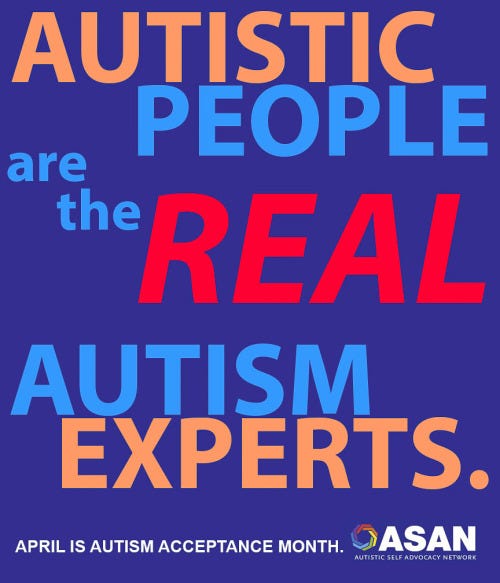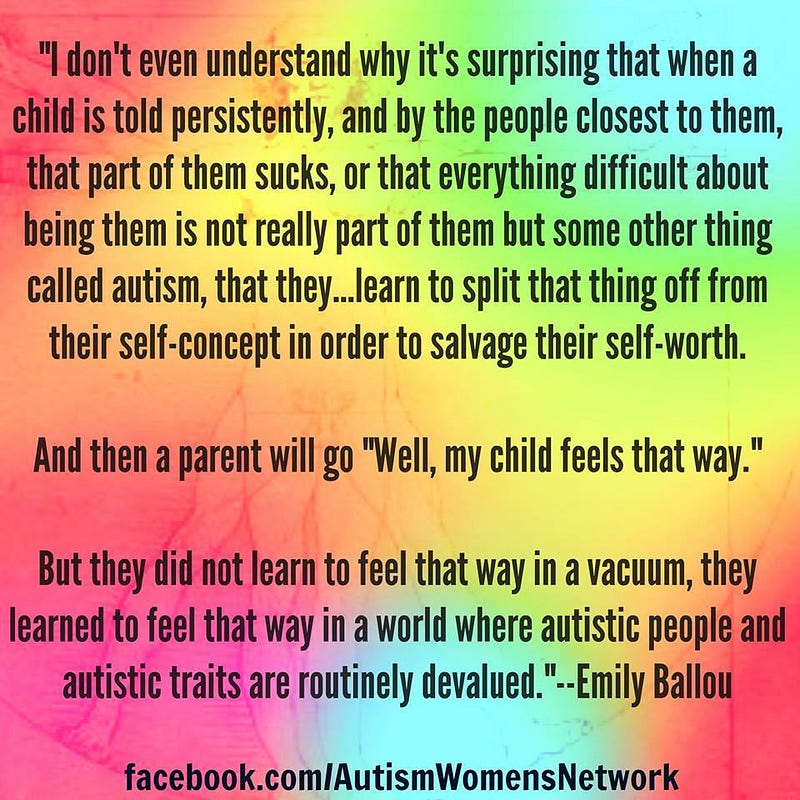UPDATED BLOG POST! ARCHIVE (2018): Autism Self-Care Tips

Autism Self-Care Tips
Are you autistic? If so, this article will probably benefit you a great deal.
So I’ve decided to create an article on how to give self-care for those of us on the Autism Spectrum. It can be quite a challenge at times to recognize that we are human beings that deserve to be loved. Loving yourself is not a bad thing, if you can recognize that you are important while also maintaining the desire to improve yourself. You are just as important as everyone else in this world.
1. Remember that no one is perfect, and that it’s okay to make mistakes.
Everyone has an ego, and it is okay to make mistakes. No one is perfect. You are allowed to make as many mistakes as possible to learn, but no mistake should be ever repeated intentionally. Most people do things unintentionally. We lash out at people at times, get angry, and experience life in it’s uncontrollable moments. Yet, we continue on. Because those of us on the spectrum find it harder to move on from this, please do try and remind yourself that you’re doing the best you can, and that change is something that is a good thing. Tell yourself that this, too, shall pass. You’ll feel a great sense of relief when you do so. Also, recognize that if a friend is not there for you in the moment, that you always can rely on someone else. If they are there for you the next time, then you should not let them go.
2. Change is inevitable.
I am not here to tell you how to deal with change, nor am I here to tell you to suck things up. That would be mean. I want you to deal with change in your own way. However, I also want to positively urge you to keep reminders internally that change is something that is constant. Unfortunately, as much as we autists try, we cannot avoid change. It is inevitable. Is change stressing you out? Tell your therapist. We are so used to routine and structure, that we often lose track of life’s chaotic moments. I think that change is something that you need to work on with a therapist. Working on it by yourself is not easy. Reach out to people who love you, support you, who want to help you, who don’t speak for you, and also recognize that you might move at a slower pace than other people, which is okay. Nothing to beat yourself up over.
3. Screw the haters.
I mean, to be honest, no one likes bullies. They suck. They’re terrible. But everyone (including us) can be bullies at times. As long as you stand up for yourself, remind yourself that there are two sides to every story, make sure you aren’t doing anything mean back, realize that it does not matter who is right and wrong, and also do not give them a reason to hurt you (meaning, do not start anything), then you’ve won. You are in control of yourself, and not others. Only you can control you. Let go of those who are toxic in your life and who don’t care about you. And for us, that can be a challenge, because we are empaths, and we feel very deeply for others. However, that does not mean that it is impossible to let these people go from your life.
4. Recognize that communication is not perfect for everyone in this world, whether it is verbal or not.
Even people who are neurotypical and allistic deal with communication errors. However, there is nothing wrong with having a limitation in communication, whether you’re an autist who is verbal or nonverbal. If someone decides to expect a lot out of you, remind yourself that it is okay to be who you are in the moment. And if you cannot think of something like this in the moment, then that is okay too, but remind yourself later on that you tried. And try not to be too hard on yourself, either. If you cannot explain, nonverbally or verbally, what you’re trying to say in the moment, that it is not your fault. You were born this way, and it’s okay to be different.
5. Even NT’s and allistic people also get meltdowns. Not as much, but you’re not alone.
Kindly remind yourself that it is okay to have meltdowns. Burnouts are something that we deal with all of the time. And most of the time, they are not even a direct attack on anyone. Make sure you are not by yourself while having one, but also make sure that you are letting it out. Trying to prevent it in the moment is impossible if you cannot think, depending on the level of a meltdown. If anyone wants a scale on measuring meltdowns, you can find one here. Also, remember that you can prevent the next one, though not every single meltdown you have, you will be able to prevent. We’re all human. To prevent it from happening would require being around people who support you, care, who don’t speak for you, and also believe in you. Stimming may or many not help you in the moment, because you’re too overstimulated. Use stims that will help you, and each time you have one, make sure to make note of which ones work for you and which ones don’t. Also, use your resources. There is this really awesome app, available for android and the iPhone, called the Emergency Chat App, which allows us to type in the words when we’re overstimulated so that we do not have to speak. And if you choose to use that app, great! If someone refuses to use the app with you while you are having one, steals your phone, etc., then they are not your friend, nor a support system. They are, if anything, toxic and won’t help you ground yourself through the meltdown at all (make sure you pick someone who won’t steal your phone). Be kind to yourself while having one. And remember, you’re not the only one who experiences them, I promise.
6. Stim…. Stim…. STIM!
If there is one way to help with Generalized anxiety in a moment, then I rely on stimming as a source to calm myself down. Stimming comes in various forms, and you already unconsciously stim. It’s an autist instinct to stim, until we meltdown. Stimming is a grounding technique that you’ve done ever since you were a baby, whether you realize it or not. Not all of us are one hundred percent self-aware, like ever, but this is something that is a coping mechanism. It can help you come back into the moment from whatever is bothering you. No matter how you stim (because there is no correct way to do it, unless you are not doing it at all), you will be able to feel a sense of relief once you do so. And so what if people judge you for it? Their ignorance is stupid. God forbid I ever break a norm…
7. Oh, well, what about depression with my executive dysfunction? It can be a challenge to do tasks, and I promise I’m not procrastinating. My motivation is lacking.
I believe you when you say you’re not procrastinating. Executive dysfunction is not procrastination. My advice? Get up, go be around people, and also plan out your schedule accordingly. Patience is also key, and habits can be hard to break, but once you stick with a routine, remember that it is okay to do so. Also, remember that not ever routine may not be the same all of the time due to change, and that it is okay to react poorly to change. We autists do deal with executive dysfunction, and it can be a challenge at times to deal with. I totally get the frustration of it all. Get a calendar, a planner, or whatever to help you. Also, make lists to remind yourself in that planner of what you need to do. You got this, and I fully believe in you if no one else does. Also, be kind to yourself. Clearly you’re trying, and that is all that matters. And even if you cannot do it that day, take it step by step, and try again later.
8. I’m in a ton of pain, and cannot control my emotions.
It’s okay not to be okay. Are you hurting, in pain, etc? Human emotions are normal, and even if you cannot express them to other people, remember that you are trying your best to cope, even if it is hard in the moment to. Surround yourself with your best support team. Make sure that no one is hurting you. Make sure you take care of you, as that is the most important thing. Go for a walk, go to the movies, etc. You are very valid, and no one should tell you otherwise. You’re allowed to feel how you feel, and reminders of that are key to improving the situation. If you cannot express how you feel to someone, tell them this. If they do not care, then do not waste your time around them within the moment. If they are constantly making the same mistake, and not making an effort to care, then clearly they need to be out of your life.
9. Privilege is such a hard concept to explain to people, I don’t like internalized ableism, and why does society hate me?
Unfortunately, we have a lot of ignorant people who want to fix us in this world. And unfortunately, no matter what, some people just will never understand it because they will not care to. I think it’s best that you be your authentic self, while still improving who you are, without fully changing you. I think people should not have to change who they are, but instead should recognize their flaws, and try to manage those. We have a lot of judgmental people who think that Autism is something that needs to be cured. Autism is not a disease, and there is NOTHING wrong with you, I promise. If anything, the problem is more so them than you. As for the internalized ableism, that is something that will take time to get rid of. You cannot get rid of it within a day, and also cannot force it away either. And as for society itself, changing everyone is impossible, but activism is something that takes courage. It takes a lot of courage to stand up to ableism and hate, and you cannot give up. It will be hard, but also you will accomplish a lot. Take it step by step, and you will achieve a lot more than you think. Not every single situation may work itself out, but reminding yourself that you are trying will help you in the long run.
That is all I can think of. If anyone wants me to add anything to this list, within reason, I will add it. I will only add to the list anything that I feel would be helpful, and not harmful. Other than that, here are some handy, dandy resources:
Other than that, remember that YOU are valid. Do not let others tell you what autism is. Listen to how you feel, and how you are. You are important to someone, even if it may not seem like it, I promise.



Comments
Post a Comment